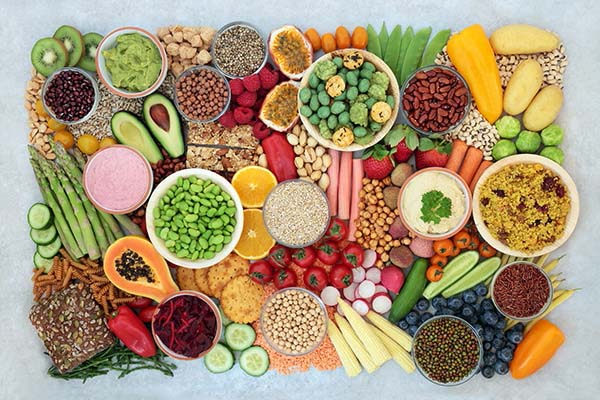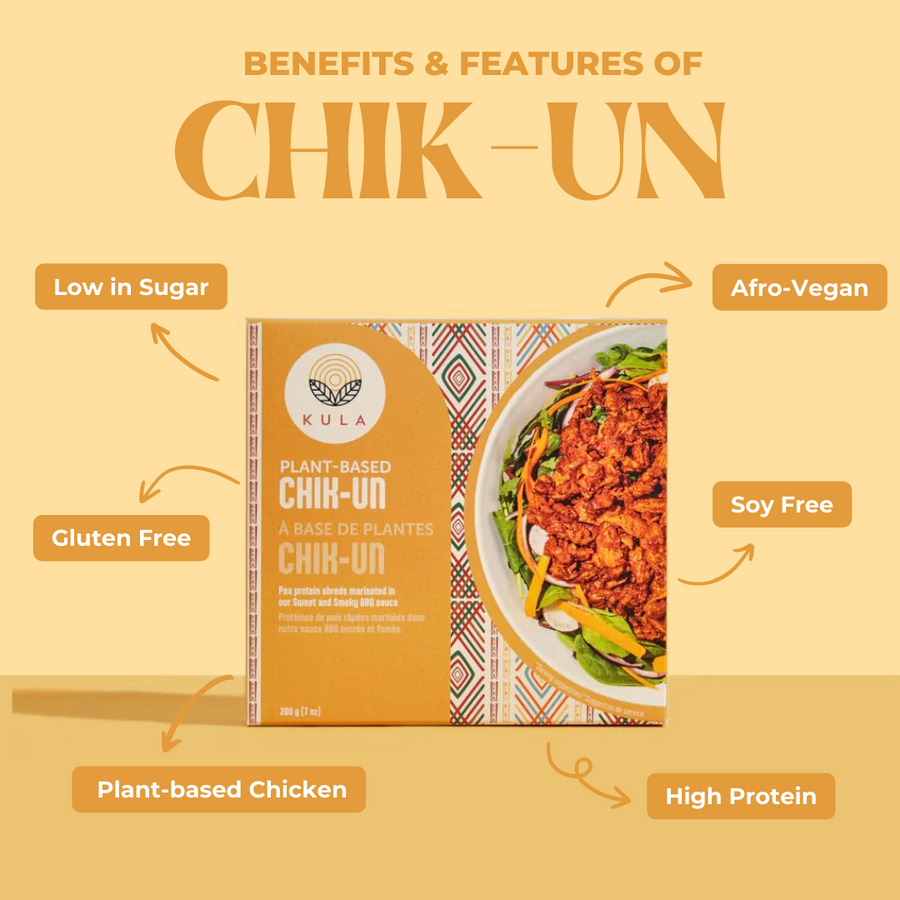All Regarding Healthy And Balanced Food: Advantages of Checking Out Plant Based Choices
The discussion surrounding plant-based diets has gained significant focus in recent times. Several people are checking out the potential health advantages, dietary advantages, and environmental influences related to these nutritional options. As people come to be a lot more knowledgeable about their food's influence on health and sustainability, concerns occur about the usefulness of taking on such a way of life. What specific adjustments can one expect, and how might these selections reshape not only personal wellness however also the earth's future?
Comprehending Plant-Based Diets
Although many individuals associate plant-based diet plans mainly with vegetarianism or veganism, these diet regimens can encompass a variety of consuming patterns that prioritize entire, minimally processed plant foods. Such diets frequently include fruits, veggies, whole grains, beans, seeds, and nuts, while limiting or removing animal products. This adaptability allows individuals to customize their nutritional choices according to dietary demands and personal preferences. Some may take on a primarily plant-based diet plan while still periodically consuming meat or dairy, typically described as a flexitarian approach. The focus stays on including even more plant foods, which can lead to a diverse range of tastes and dishes. Understanding these various interpretations of plant-based eating is necessary for valuing its accessibility and appeal in contemporary food culture.
Health And Wellness Perks of Plant-Based Foods
The wellness advantages of plant-based foods are substantial, providing a nutrient thickness advantage that supports total wellness. Study shows that these foods can boost heart health and play an important role in efficient weight administration. By integrating much more plant-based choices, people might improve their dietary options and promote long-term health.
Nutrient Thickness Benefit
Nutrient density plays a necessary function in the health and wellness benefits of plant-based foods, making them a compelling selection for those looking for a balanced diet. Plant-based foods, such as fruits, vegetables, beans, nuts, and entire grains, are commonly rich in vital vitamins, minerals, and antioxidants while being reduced in calories. This high nutrient thickness enables individuals to eat less calories while still satisfying their nutritional demands. In addition, these foods are loaded with dietary fiber, promoting digestive wellness and helping in weight management. By incorporating nutrient-dense plant-based alternatives, consumers can enhance their total health and wellness, support their body immune systems, and minimize the risk of persistent illness. Ultimately, the nutrient thickness of plant-based foods highlights their importance in a health-conscious way of living.
Heart Health And Wellness Improvement

Weight Administration Support
In enhancement to promoting heart wellness, a plant-based diet plan can considerably help in weight management. This nutritional approach stresses whole foods such as fruits, vegetables, beans, nuts, and whole grains, which are usually lower in calories and greater in fiber compared to animal-based products. The high fiber web content helps boost satiation, minimizing overall calorie intake. Plant-based diets are usually rich in necessary nutrients while reduced in unhealthy fats, making it much easier to keep a healthy weight. Research study suggests that individuals that take on a plant-based lifestyle have a tendency to have reduced body mass indexes (BMIs) and experience even more effective weight-loss contrasted to those that eat meat-heavy diets. Accepting plant-based choices is a calculated selection for reliable weight monitoring.
Nutritional Worth of Plant-Based Active Ingredients
Plant-based ingredients are rich in important nutrients, using a varied variety of vitamins, minerals, and anti-oxidants that add to general health and wellness. A contrast of healthy protein sources exposes that while animal products are frequently deemed exceptional, numerous plant-based choices offer sufficient protein and various other beneficial substances. Recognizing the dietary value of these ingredients can help people make educated nutritional options.
Important Nutrients in Plants
Nutrient-rich ingredients found in plants supply a varied range of important minerals and vitamins that contribute substantially to overall health. These active ingredients are abundant in vitamins A, C, and K, which support immune feature, vision, and blood clot, respectively. In addition, plants give crucial minerals such as magnesium, potassium, and calcium, essential for heart health and wellness, muscle feature, and bone stamina. The presence of fiber in plant-based foods help digestion and advertises a healthy intestine microbiome. Antioxidants, located generously in fruits and vegetables, help battle oxidative stress and minimize inflammation. Many plant foods are reduced in calories yet high in nutrients, making them an excellent option for those looking for to maintain a healthy weight while making certain optimal nutrient consumption.

Comparing Healthy Protein Resources
Protein sources differ significantly in their nutritional profiles, with plant-based active ingredients using special advantages. Unlike pet healthy proteins, which commonly consist of saturated fats and cholesterol, plant proteins often tend to be lower in these unhealthy parts. Legumes, nuts, seeds, and whole grains are rich in crucial amino acids, fiber, vitamins, and minerals. For circumstances, lentils offer high healthy protein material alongside substantial iron and folate, while quinoa is a full protein, supplying all 9 crucial amino acids. Furthermore, plant-based healthy check that proteins are often come with by antioxidants and phytochemicals that sustain overall wellness. The shift to plant-based healthy protein sources not only boosts nutritional consumption but likewise aligns with sustainable nutritional practices, minimizing environmental effect and advertising long-term health and wellness advantages.
Environmental Effect of Plant-Based Consuming
As understanding of environment change grows, lots of people are exploring lasting nutritional choices that can considerably decrease their environmental footprint. Plant-based consuming has actually become a significant factor to lowering greenhouse gas emissions, which are mainly connected with animals production. The cultivation of fruits, veggies, beans, and grains generally needs less sources, such as water and land, contrasted to pet farming. In addition, plant-based diet regimens can cause reduced logging, as less land is required for grazing livestock or growing animal feed. By changing towards plant-based my response alternatives, customers can support biodiversity and promote much healthier ecosystems. On the whole, welcoming plant-based eating not just advantages individual wellness yet additionally stands for a vital step toward environmental sustainability and preservation efforts.
Overcoming Common Misconceptions
While numerous individuals recognize the benefits of a plant-based diet regimen, several mistaken beliefs usually hinder them from totally welcoming this lifestyle. A common idea is that plant-based diet regimens do not have adequate protein; nevertheless, various plant sources, such as beans, nuts, and tofu, give ample protein. In addition, some think that this diet plan is expensive, when as a matter of fact, staples like beans, rice, and seasonal vegetables can be fairly inexpensive. An additional false impression is that plant-based consuming is excessively restrictive, whereas it in fact uses a diverse array of foods and flavors. Lastly, many stress that a plant-based diet regimen may cause deficiencies, yet with proper preparation, individuals can obtain all essential nutrients, including vitamins and minerals, while enjoying a large variety of scrumptious meals.
Tips for Transitioning to a Plant-Based Lifestyle
Making the change to a plant-based lifestyle can be an improving experience, though it frequently calls for some assistance to navigate the first modifications. Initially, individuals are motivated to start progressively, incorporating more fruits, veggies, legumes, and whole grains right into their dishes while decreasing meat and milk intake. Dish planning is vital; preparing an once a week food selection can aid ease the modification and stop final harmful selections. Checking out brand-new dishes and cooking approaches can also enhance the experience and preserve exhilaration concerning plant-based eating. Additionally, joining support system or communities can offer motivation and share important ideas. Staying informed concerning nourishment warranties well balanced meals, stopping deficiencies while fostering a healthy, satisfying plant-based way of living.

Delicious Plant-Based Dish Concepts
Exploring delicious plant-based meal concepts can inspire individuals to welcome a more healthy diet regimen. One preferred option is a hearty quinoa salad, including cherry tomatoes, cucumber, and a tangy lemon-tahini clothing. An additional fave is a mouthwatering lentil stew, packed with carrots, celery, and aromatic natural herbs, excellent for a comforting dinner. For morning meal, over night oats made with almond milk, chia seeds, and topped with fresh berries offer a healthy begin to the day. In addition, a dynamic veggie stir-fry with tofu and a selection of vivid veggies can be a fast yet pleasing dish. Velvety avocado toast on whole-grain bread, sprayed with seeds and spices, offers an easy yet tasty snack. These meals showcase the selection and splendor of plant-based consuming.

Often Asked Questions
Can a Plant-Based Diet Regimen Supply Enough Healthy Protein?
The concern of whether a plant-based diet regimen can supply sufficient healthy protein is typical. Numerous resources, including vegetables, nuts, seeds, and whole grains, can satisfy protein requires effectively, sustaining a nutritious and well balanced diet for people.
Are Plant-Based Diets Appropriate for Kid?
The suitability of plant-based diet regimens more info here for children depends upon careful planning. Ample nutrients should be assured, including minerals, vitamins, and proteins. With appropriate advice, such diet plans can sustain healthy and balanced growth and advancement in youngsters.
How Do I Eat in restaurants on a Plant-Based Diet regimen?
Eating in restaurants on a plant-based diet plan entails looking for restaurants with diverse food selections, requesting for modifications, and checking out vegan-friendly alternatives. Preparation ahead and communicating dietary choices can boost the eating experience while maintaining dietary options.
What Prevail Irritants in Plant-Based Foods?
Usual allergens in plant-based foods include soy, gluten, nuts, and seeds - Plant Based Beef. People following a plant-based diet must be aware of these irritants and review tags meticulously to avoid unfavorable reactions and ensure risk-free usage
Can Plant-Based Diets Assist With Weight Reduction?
Research study suggests that embracing a plant-based diet plan may help with weight management as a result of its commonly reduced calorie thickness and greater fiber web content. This mix can improve satiation, assisting individuals manage their caloric consumption properly. Several individuals connect plant-based diet plans primarily with vegetarianism or veganism, these diet plans can encompass a wide range of consuming patterns that focus on whole, minimally processed plant foods. Nutrient thickness plays a crucial duty in the wellness advantages of plant-based foods, making them a compelling choice for those looking for a well balanced diet. Plant-based diets have been revealed to substantially boost heart health and wellness, as they typically include elements that sustain cardiovascular function. In enhancement to promoting heart wellness, a plant-based diet regimen can significantly aid in weight monitoring. A typical belief is that plant-based diet regimens lack enough protein; however, countless plant sources, such as beans, nuts, and tofu, supply ample healthy protein.